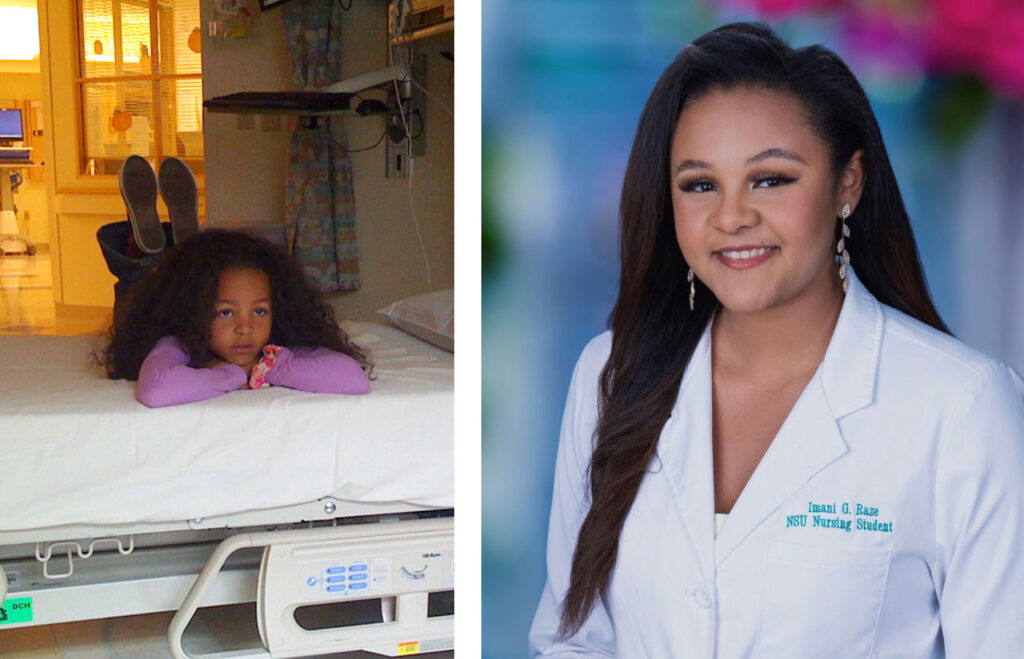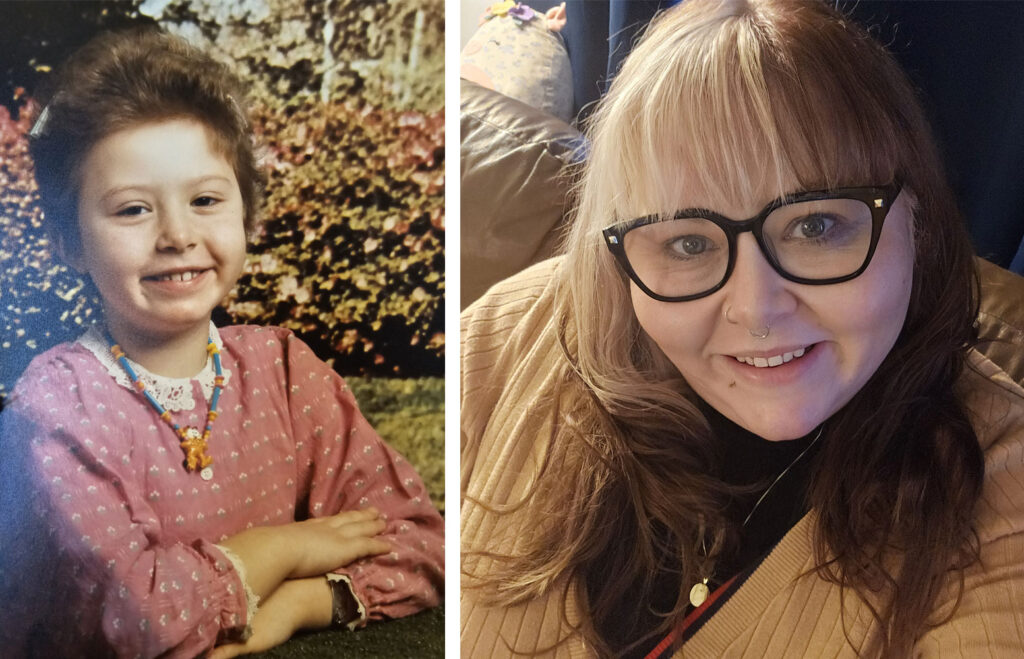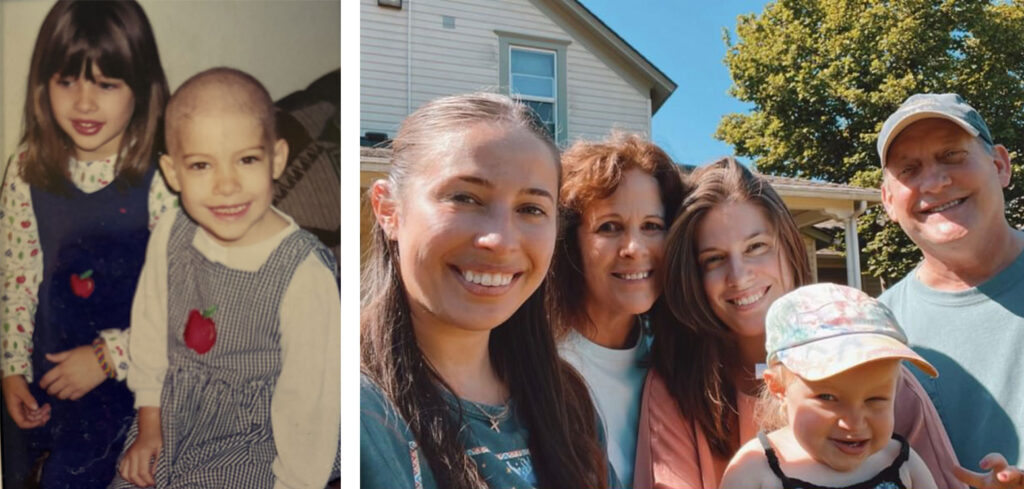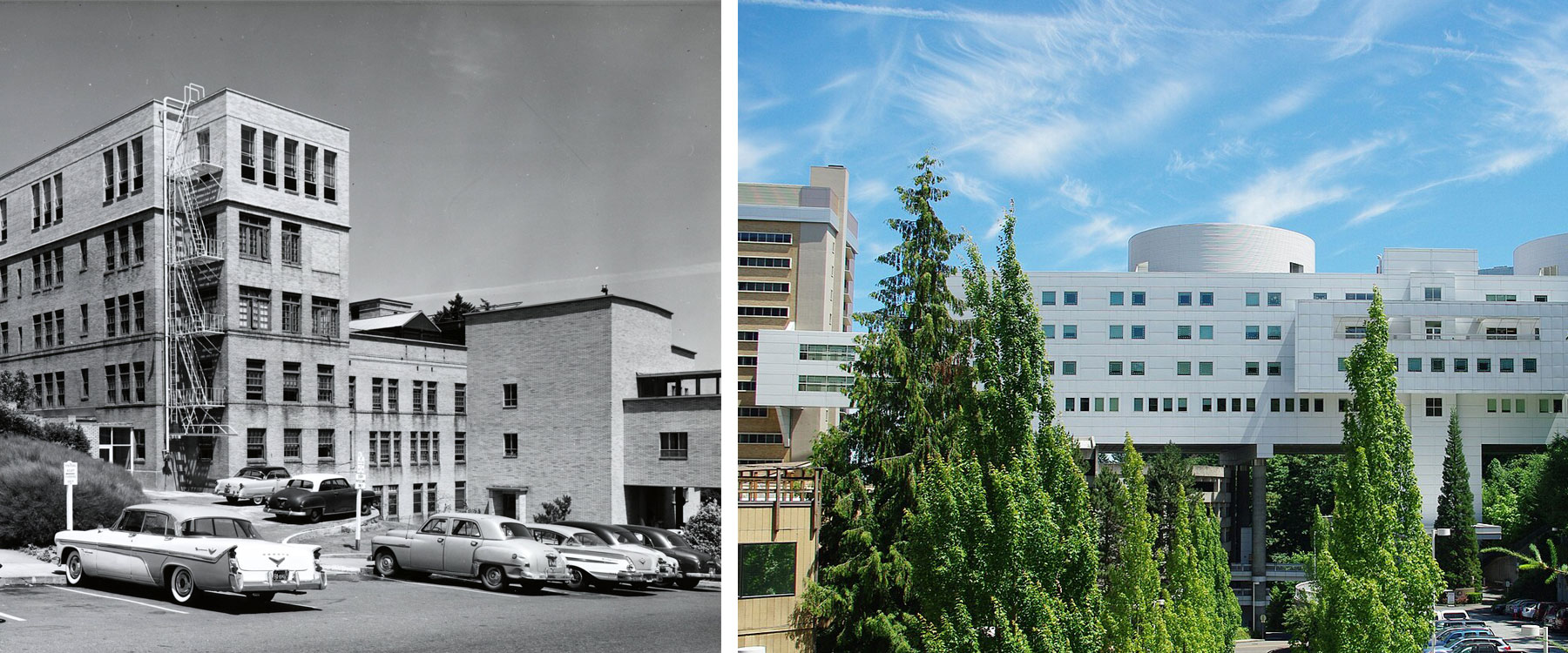By Darby Kendall
Kids and families in the Northwest have one of the best pediatric hospitals right in their backyard. For over 90 years, OHSU Doernbecher Children’s Hospital has proudly offered the most comprehensive range of pediatric health care services in the region. Their team of experts provides family-centered care, designed to meet children’s exact needs.
There’s a long-lasting impact on those who receive care at Doernbecher — people remember their time there, from intensive medical procedures to passing interactions with providers. We had the chance to catch up with a few former Doernbecher patients and their families, reflecting on how their experiences at the hospital changed their health and futures for the better.

On her 11th birthday, Imani Raze was diagnosed with Myelodysplastic syndrome — a group of cancers that keep blood stem cells from maturing into healthy blood cells — after having months of endless, unexplained nosebleeds. Within two weeks of the diagnosis she was admitted to Doernbecher, where she underwent a bone marrow transplant in 2011.
“My nurses were so patient and spent so much time educating myself and my family. They would notice that I liked crafts and crochet and would recommend pattern websites or bring activities for me to stay busy. It was those small details that made all the difference to my experience in the hospital throughout my transplant and after,” Raze remembered. “A few years later, my oncologist was kind enough to allow me to interview her for a school project and spent more than a fair amount of her afternoon answering mine and my classmate’s questions, which was very generous of her.”
The nurses who took care of Raze made a lasting impression, so much so that she is now a nurse in a pediatric oncology-hematology unit in Florida. A few years ago, Raze visited Doernbecher again and got to see some of the people who knew her as a child.
“I dropped off a number of copies of the book I published about my experience with cancer and had the chance to tell a few of the nurses that recognized me that they had inspired me to go to nursing school. Every day they are my inspiration,” Raze said.
“I think Doernbecher is really a remarkable institution; I had so many opportunities there both medically and recreationally. I’ve spent much of my life trying to advocate and give back through toy drives and educating people about being bone marrow donors because of the impact it has left on me.”

The week before Christmas of 1988, Stephanie DeGrandpre went to Doernbecher Children’s Hospital after her primary pediatrician ran some labs due to her looking pale. At just 5 years old, DeGrandpre was diagnosed with acute lymphoblastic leukemia.
“I remember when I was admitted to the hospital, I was not happy. Having the playroom to go to was so helpful,” DeGrandpre said. “It was where I discovered the markers that smelled like fruit and had some really hard conversations with my mom about what was to come. I also loved being able to play Nintendo in my room.”
Three years later, DeGrandpre had her last treatment for leukemia, and she lives a cancer-free life today. She thanks her providers for having such a powerful effect on her health, saying her oncologist at Doernbecher gave her the best medical care she’s ever had.
“Staying at Doernbecher made a huge impact on my life. I wanted to be able to help other families who have children fighting cancer, so I have entered the world of social work,” DeGrandpre said. “My goal is to help families dealing with the struggles of children with cancer. I will get there one day; for now, I am working at a resource center helping all kinds of families.”

Riding in the ambulance with your child is never a situation any parent wants to be in, but Donna Perkey found herself in one going to Doernbecher Children’s Hospital with her daughter in 1998. Perkey and her husband, Doug, had just been told their four-year-old daughter, Danae, was diagnosed with leukemia, and were immediately transported from a hospital in Eugene, Oregon to Doernbecher.
“Once we got to Doernbecher, the doctor came in and took one look at her and did a quick exam, and goes, ‘This is what we’re going to do. This is the protocol she’ll be on, and she’s going to be fine,’” Donna recalls. “Then, for the first time in almost 48 hours, we finally got something to eat. Doernbecher sent us up hamburgers from the cafeteria. That was really great.”
Donna and Doug then spent the next four years in and out of the hospital during Danae’s treatment, building relationships with her providers and finding solace in the comforting corners of the hospital.
“I remember getting to basically play the mother of the community room there, and I found all the food, where everything was kept. Since we were there for so long, I got to know where everything always was. If a new person came in, I actually felt like a Walmart greater. ‘Here’s more chocolate!’ You kind of have to make it your home.”
Danae is now cancer free and has children of her own, and whenever the family finds themselves in need of pediatric care, Doernbecher Children’s Hospital is always there.

